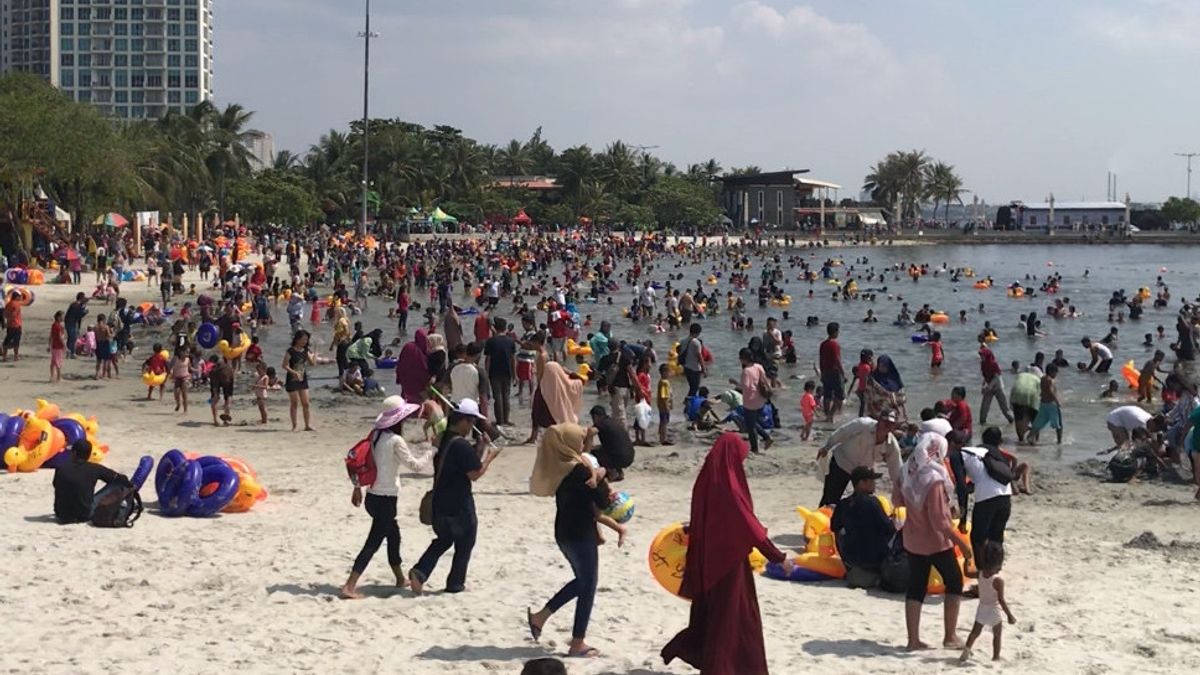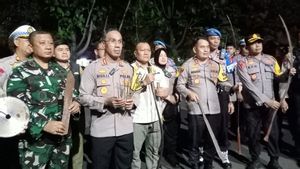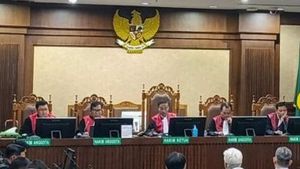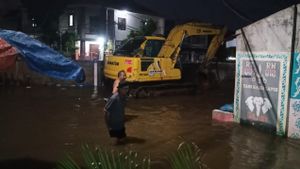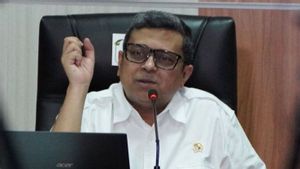JAKARTA - Chairman of the Regional Regulation Establishment Agency (Bapemperda) of the DKI Jakarta DPRD Pantas Nainggolan said that the reclamation project in Ancol, North Jakarta could not be continued until the regional regulations (perda) regarding detailed spatial planning (RDTR) and zoning plans were passed.
"If there are no RDTR and zoning regulations, the DKI Provincial Government cannot carry out Ancol reclamation," said Pantas when contacted by VOI, Monday, July 20.
It is appropriate to confirm that currently the DKI Jakarta Provincial Government has submitted the draft revised RDTR and zoning regulations because it will be discussed this year. This foundation was revised because previously the Governor of DKI Jakarta revoked Perda No.1 of 2014 concerning RDTR and Zoning.
However, Bapemperda has not yet been able to discuss the drafting of a revised perda that will cover the provisions of the Ancol reclamation project. This is because the DPRD must listen to the initial explanation from the Governor of DKI Jakarta Anies Baswedan.
"Reportedly the administrative files have been submitted to the DPRD. However, until now there has been no scheduling of a plenary meeting. There, the Governor explained the draft perda, after that we will discuss the drafting as a whole," said Pantas.
"We are just waiting for the contents of the revised perda. The problem is, in the discussion later, we also need to discuss the overall environmental impact assessment, the reasons that drive the reclamation," he continued.
Ancol reclamation is disputed because there is no reclamation regulation, Anies only issued Governor Decree No. 237/2020 concerning the Permit to Implement Ancol Recreation Area Expansion. Even though the legal umbrella for this reclamation should be a local regulation
"If the Kepgub is made only for principle permits and entry points for making an analysis of environmental impacts (AMDAL), that's fine. But, what is clear, there should be no development there if the local regulation has not been published," he said.
Previously, DKI Jakarta Deputy Governor Ahmad Riza Patria said the draft revision of the regional regulation on RDTR and zoning would soon be discussed this year. According to Riza, renewing this legal umbrella is a priority that will be discussed by the DKI Provincial Government and the DKI DPRD.
This is because the draft regional regulations (raperda) on RDTR and zoning are the legal basis for legalizing reclamation in Ancol, North Jakarta. "Revisions to the regional regulations (RDTR and zoning, ed) are being processed, yes, with the DPRD," said Riza.
The Ancol reclamation area will be 155 hectares. With details of 35 hectares in the Dunia Fantasi (Dufan) area or K Island and 120 hectares in East Ancol or Island L.
In Perda DKI 1/2014, the reclamation provisions that are regulated only exist on K Island because it has the same location as the K Island reclamation of Jakarta Bay. Meanwhile, on L Island, the land area from the reclaimed L Island, Jakarta Bay, has decreased from 480 hectares to 120 hectares.
In discussing the RDTR and Zoning draft regulations later, Riza said that the DKI Jakarta Provincial Government will bring arguments for the Jakarta Emergency Dredging Initiative (JEDI) and the Jakarta Urgent Flood Mitigation Project (JUFMP) which have been running since 2009.
JEDI and JUFMP are programs for dredging rivers and reservoirs to collect more water when it rains, thereby reducing the impact of flooding. Then, the remaining dredging mud will become reclaimed land in Ancol.
"The expansion of East Ancol is the expansion of Ancol and Dufan recreation. So, East Ancol reclamation has been carried out since 2009, sedimentation or soil piles from soil dredging for flood management programs," explained Riza.
"There is sedimentation that has started to accumulate in 15 rivers and 5 large reservoirs in Jakarta, which are already 20 hectares. Then, there are 30 more reservoirs that need to be dredged and their places are found. This is the entrance for us to improve the RDTR (and zoning) regulations," he added.
[/ read_more]
The English, Chinese, Japanese, Arabic, and French versions are automatically generated by the AI. So there may still be inaccuracies in translating, please always see Indonesian as our main language. (system supported by DigitalSiber.id)
